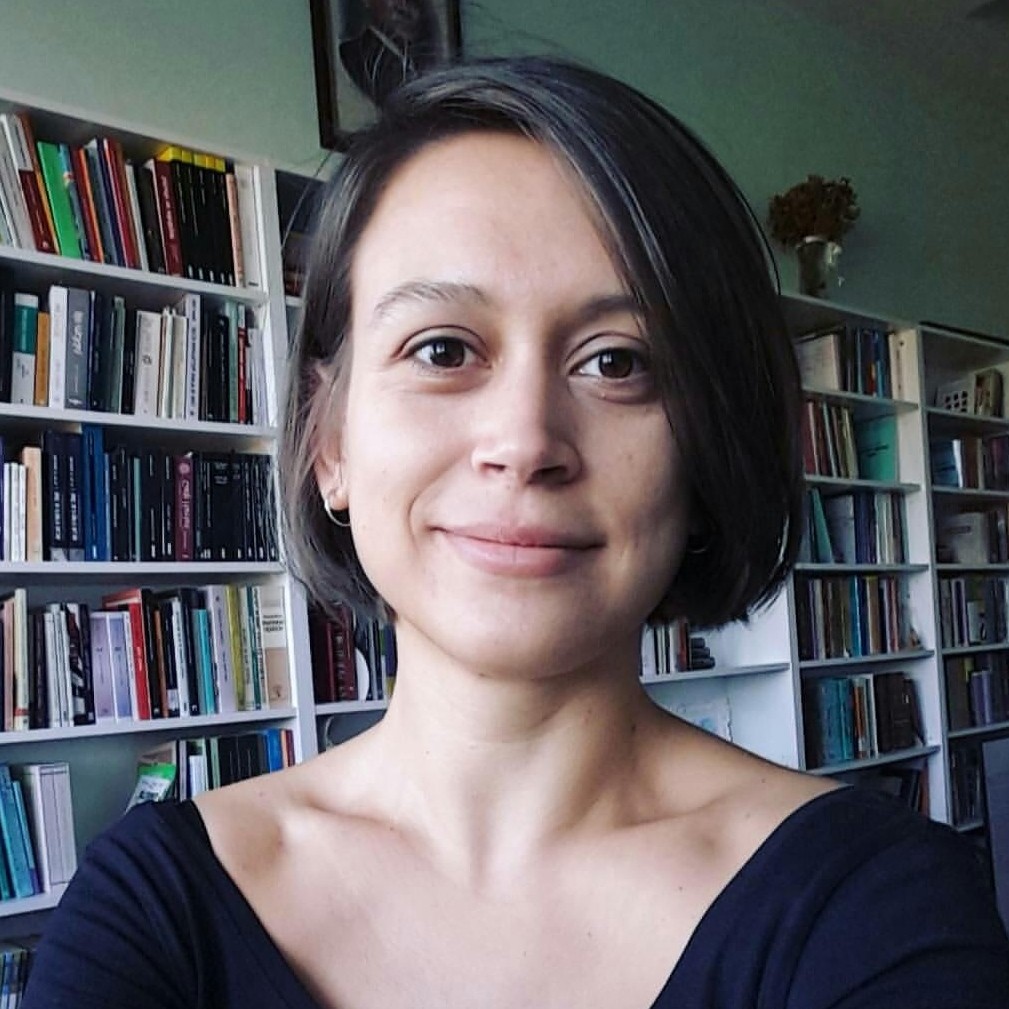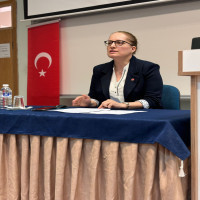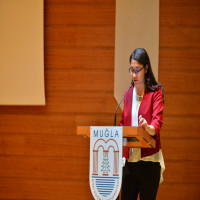Scientific studies sent to bitig Journal of Faculty of Letters by Muğla Sıtkı Koçman University must not have been previously published or sent for publication. The publication decision regarding the studies submitted to the journal, and the identity of the authors and referees are kept confidential. Scientific and original research articles, translations and book reviews in the aforementioned fields can be sent to the journal. More than one work by the same author/authors cannot be published in the same issue of the journal.
The journal accepts articles in Turkish and English.
Spelling and punctuation are based on the latest edition of the Spelling Dictionary by Turkish Language Institution (TDK). The papers submitted should be clear and comprehensible and in accordance with scientific criteria in terms of language and expression. If necessary, papers can be corrected in terms of spelling rules by the editors.
Authors are responsible for the compliance of the papers with the ethical rules. The similarity rate to other scientific publications should not exceed 25%. Besides, the editor reserves the right to request an ethics committee document from the authors if necessary.
Research articles sent to the journal must be at least 8000, maximum 10.000 words; book reviews should be a minimum of 3000 and a maximum of 5000 words. Translations, text publications and works containing excavation reports in the field of Archaeology are excluded from this rule.
Submissions from the basic fields of social sciences and philology are accepted to the journal. Papers should be prepared on the following template:
Title: The title should be short and informative about the research topic. Only the first letter of the words should be capitalized (excluding the conjunctions). They should be in 14 font size, bold and centred. The English title should be written under the Turkish title and should be 12 points.
Author Information: The first letter of the author's name and all letters of the surname should be written in capital letters, 11 font size, bold and centred. The institution where the authors work, their e-mail addresses and ORCID numbers should be given in the footnote with a “*” sign.
Abstract: At the beginning of each article, there must be an abstract in Turkish and English, consisting of at least 250 and maximum 500 words, reflecting the purpose, method and findings of the research. Each article should contain at least five and at most eight keywords related to the abstract. Abstract and keywords should be written in 10 points. The abstract title should be 10 points, the abstract should be single line spacing, 9 points and the left and right should be indented 1 cm.
Paper Size: A4 Vertical
Top Margin: 2.5 cm
Bottom Margin: 2.5 cm
Left Margin: 2.5 cm
Right Margin: 2.5 cm
Font: Montserrat
Font Style: Normal
Size (Normal Text): 10
Size (Footnote Text): 9
Table-Graphic: 9
Paragraph Spacing: Single Line (0 pt before, 0 pt After) (0 pt before and after in tables and graphs) No paragraph indents
Line spacing: Text single line (0 pt before, 8 pt after); abstract and footnote single line spacing. Abstract should have 1 cm indent on the right and left.
References: 0 cm per paragraph in the lines of the references (lines should be indented 1.25 cm)
For articles that use a special font, the font used should also be sent to the journal with the text.
The parts that need to be emphasized in the text should not be in bold letters but italicized or in quotation marks.
Details such as page numbers, headers and footers should not be included in the articles.
Chapter titles: All main and sub-headings should be written with only the first letters capitalized and bold, left aligned, and all section headings should be in 10 points.
Tables, Graphics and Images: Tables, graphics and visuals should have numbers and titles, and these numbers and names should be just below the figure. Images to be used in articles should be in jpeg or tiff format and their resolution should not be less than 300 dpi.
Abbreviations: In submissions, the abbreviations used in the articles, the official abbreviation index and rules of the language in which the article is written should be followed. For Turkish, the TDK Abbreviations Index should be taken as a basis.
Quotations: Direct quotes should be quoted. Quotations of less than 4 lines should be quoted in the paragraph, and quotes of 5 or more lines should be given in the form of independent paragraphs. Such blocks should have a space of 1 cm from the left and right of the citation, should not be given a paragraph head and should be 9 pt in size. The line spacing must also be 1 cm.
Submission: Parenthetical references should be used for in-text citations of the article. There must be a bibliography at the end of the article.
It should be stated in the format in single-authored publications like (Akar 2020: 56), and in multi-authored citations like (Ayan et al. 2013: 35).
If the name of the cited author is included in the text, only the publication year and page should be indicated: (2004: 37).
Electronic sources should be specified as (URL-1), (URL-2), … in the text and should be written as follows in the “References” section:
URL-1: Mesîhî (2020), Mesîhî Dîvânı, haz. Mine Mengi, https://ekitap.ktb.gov.tr/Eklenti/10686,metinpdf.pdf?0 (e.t. 23.12.2020).
The names of the ancient works and authors should be given without any abbreviations.
Sample: Ksenophon, Oikonomikos, 2.21.
If there are more than three references to a concept or citation in the articles which sent to the journal, footnotes can be used.
References: References should be given in alphabetical order at the end of the main text according to the surnames of the authors.
Sample: Tanpınar, Ahmet Hamdi (1988), Huzur, İstanbul: Dergâh Yay.
If the article has two authors, the surname of the author who is first in the work is given first.
Sample: Parlatır, İsmail ve Nurullah Çetin (1996), Genç Kalemler Dergisi, Ankara: Akçağ Yayınları.
If the article has more than three authors, after the information of the first author, the abbreviation of et al. should be used.
Sample: Kaplan, Mehmet et al. (1983), Devrin Yazarlarının Kalemiyle Millî Mücadele, Ankara: Kültür ve Turizm Bakanlığı Yayınları.
The names of major-independent works such as book and journal titles should be written in italics, and minor-dependent works such as book chapters and poems should be written normally but in quotation marks.
If the chapters of a journal, encyclopedia article, or book are used, page range information should be given at the end of the references. The display of journal and encyclopedia articles (volume, issue and page) should be as follows:
Sample: Ayhan, Gökben (2022), "Geleneksel Ula Evlerinde Çıkma", bitig Edebiyat Fakültesi Dergisi, 2 (4), 282-297.
If there is a translator, compiler or preparer, the name of the editor should be given after the name of the author and the work.
Sample: Rosenau, P. Marie (1992), Postmodernizm ve Toplum Bilimleri, çev. Tuncay Birkan, İstanbul: Ark Yay.
In case there is more than one work of the same author with the same date in the references, it should be shown as "a, b, c ...".
Sample: (İpekten 2001a: 82)
If the thesis is used, the surname-name of the author, the date of the thesis, the title of the thesis in italic characters, the type of the thesis, the name of the city and the university should be included.
Sample: Dündar, Leyla Burcu (2001), Murathan Mungan’ın Çağdaş Masallarında Cinsiyetçi Geleneğin Eleştirisi, Ankara: Bilkent Üniversitesi Ekonomi ve Sosyal Bilimler Enstitüsü Türk Edebiyatı Disiplini Yüksek Lisans Tezi.




 Web
Web




















 Creative Commons Attribution-NonCommercial-ShareAlike 4.0 International License.
Creative Commons Attribution-NonCommercial-ShareAlike 4.0 International License.




